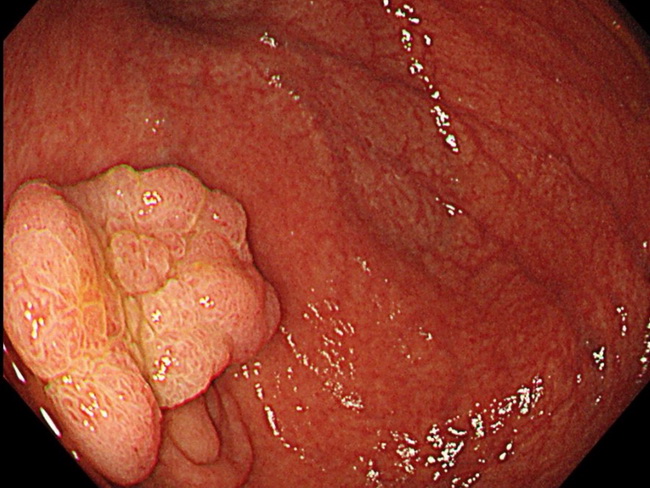Colon Polyps : Colonoscopy


Comments:
For asymptomatic individuals at average risk of developing colo-rectal cancers, the American Cancer Society recommends undergoing one of the following test screening tests for early detection starting at age 50 years: colonoscopy (every 10 years), CT colonography (virtual colonoscopy; every 5 years), flexible sigmoidoscopy (every 5 years) and double-contrast barium enema (every 5 years). Colonoscopy is the preferred colon cancer screening test due to its diagnostic and therapeutic capabilities and advantages over other modalities. The adenoma detection rates at screening colonoscopy range from 25% to 40%. In average-risk asymptomatic population with no adenomas at baseline colonoscopy, repeat colonoscopy within 5 years shows adenomas in 16% to 27% of individuals. Limitations of colonoscopy: Colonoscopy has some limitations as follows: failure to reach cecum in about 10% of cases; patient has to be sedated; high cost; may miss lesions located at flexures or behind mucosal folds. The polyp miss rates for various sizes are: larger than 1 cm (0% to 6%); 0.6 to 0.9 cm (12%), and smaller than 0.6 cm (15% to 27%). The image shows endoscopic view of a large tubular adenoma of cecum. Image courtesy of: @Patholwalker.



